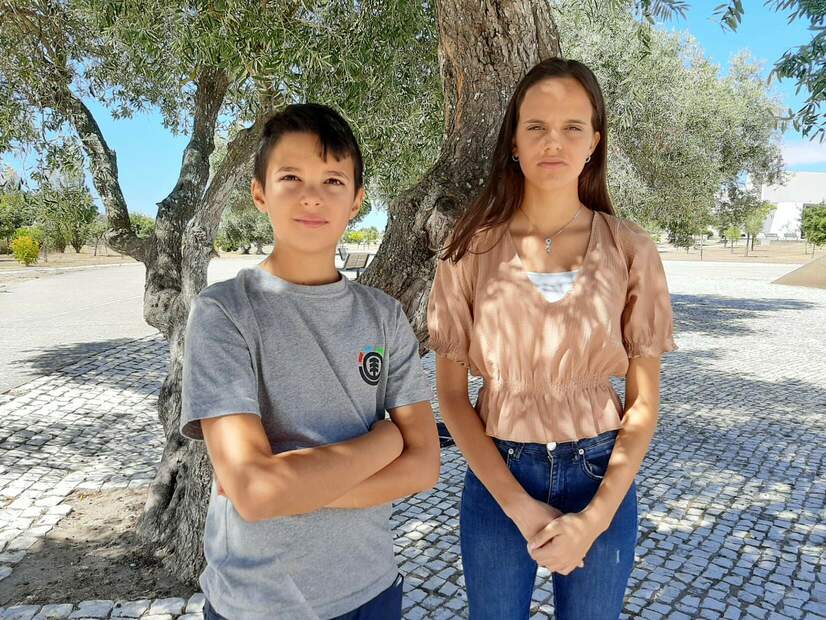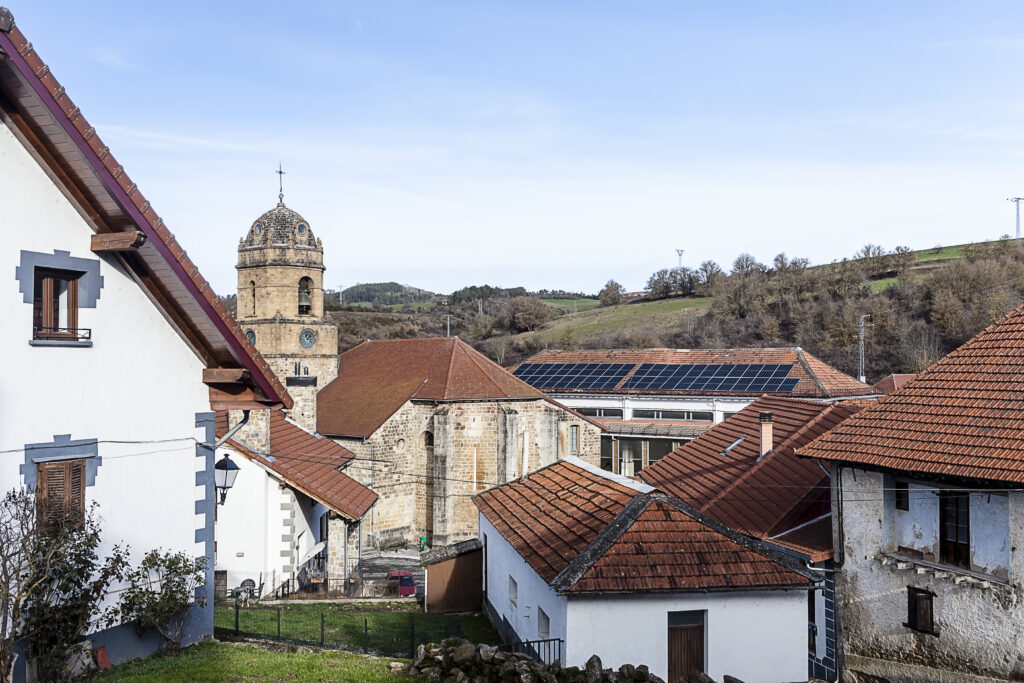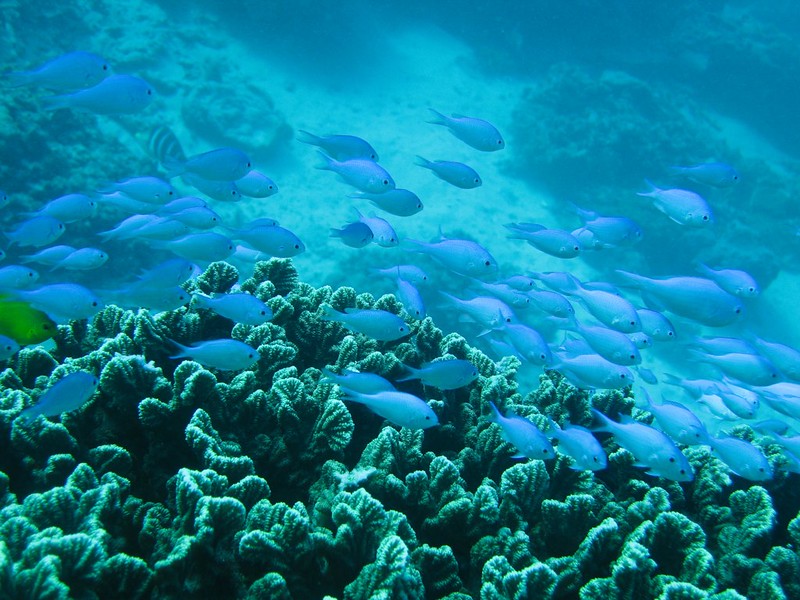Six young people from Portugal have filed an unprecedented climate change lawsuit against almost all of Europe, targeting 33 European nations for failing to take adequate action on the climate crisis that they say threatens their human rights.
It is the latest in a series of legal actions brought by young people around the world demanding urgent climate action to protect their fundamental rights and safeguard their futures.
The case was filed on September 3 in the European Court of Human Rights in Strasbourg, France. It is the first climate case brought directly to this international court. Lawyers for the youth plaintiffs will argue that European governments’ current plans for cutting greenhouse gas emissions are insufficient to prevent catastrophic climate change and therefore constitute human rights violations under the European Convention on Human Rights.
“If successful, the 33 countries would be legally bound, not only to ramp up emissions cuts, but also to tackle overseas contributions to climate change, including those of their multinational companies,” the charity Global Legal Action Network, which is providing legal support for the case, explained in a press release.
These 6 Portuguese young people face a devastating future of spiraling heat extremes
Today, with our support, they’ve filed an unprecedented climate case against 33 European states demanding deep & urgent cuts to their carbon emissions
To support, visit https://t.co/kdbhkfQqgE pic.twitter.com/hoQL4GRbcq
— Global Legal Action Network (@GLAN_LAW) September 3, 2020
Countries named as defendants in the case include Austria, Belgium, Bulgaria, Cyprus, Czech Republic, Germany, Greece, Denmark, Estonia, Finland, France, Croatia, Hungary, Ireland, Italy, Lithuania, Luxembourg, Latvia, Malta, the Netherlands, Norway, Poland, Portugal, Romania, Russia, Slovak Republic, Slovenia, Spain, Sweden, Switzerland, the United Kingdom, Turkey, and Ukraine. These nations make up the European Union plus six other countries that together are the major emitters in Europe.
According to research from Climate Action Tracker, which tracks and analyzes countries’ emissions reduction policies, the policies of these nations do not align with the Paris Agreement goals of limiting global temperature rise to well below 2 degrees C (3.6 degrees F) and pursuing a limit of 1.5 degrees C (2.7 degrees F).
The United Nations Environment Programme refers to this misalignment between what nations of the world promised under the Paris Agreement and what their domestic policies on emissions cuts actually represent as the “emissions gap.” Under current climate policies, the world is on track for more than 3 degrees C (5.4 degrees F) of warming by 2100. An October 2018 report from the Intergovernmental Panel on Climate Change warned of increased risks to human health, livelihoods, food and water security, and other dangerous impacts if warming exceeds 1.5 degrees C.
But top climate scientists like Dr. James Hansen have warned that even warming of 1.5 degrees C is not safe. In a 2013 paper Hansen and colleagues explained that rapid emissions reductions are needed to stabilize the climate and “avoid potentially disastrous impacts on today’s young people, future generations, and nature.” That paper pointed to the “intergenerational injustice” of the climate crisis and suggested that courts could play a key role in remedying that injustice.
The climate science, therefore, has direct implications for human rights. “It is not just the future of these young people and countless others which is on the line in this case,” Global Legal Action Network Director Dr. Gearoid ÓCuinn said in a press release. “Experts have said that the climate crisis puts the very survival of human rights at risk. Never before has the European Court of Human Rights been faced with an issue of such existential significance.”
Still, courts have tended to struggle when it comes to fully grappling with the human rights dimensions of the climate crisis. Courts have dismissed cases that included rights-based claims brought against governments in the European Union, the UK, and the U.S., and in a recent Supreme Court decision in Ireland, though counted as a win for the climate litigants, the chief justice said he viewed the right to a healthy environment as “impermissibly vague.”
Courts in the Netherlands, however, have accepted the human rights arguments brought in a landmark climate case by the Urgenda Foundation, including finding violations of the European Convention on Human Rights. The new youth climate case against the 33 European countries, dubbed “Youth for Climate Justice,” hopes to build on the success of the Urgenda case.
Burgeoning Youth Movement Turning to the Courts
This new case is just the latest in what appears to be a rising tide of legal actions brought by young people against governments and corporations most responsible for the climate crisis and actions to address it.
15 Mexican youths filed a lawsuit against their government, asking that it comply with the terms of the General Law on Climate Change and Mexico’s Constitution. Press release here: https://t.co/wRGbgT8slk #youthvgov #YouthvGovMexico #JóvenesvsGob pic.twitter.com/TX1LkIfg03
— Our Children’s Trust (@youthvgov) September 2, 2020
Fifteen youths in the State of Baja brought a new climate case against the government of Mexico. Kids are also suing their governments in Canada, the U.S., South Korea, Germany, and Norway, for example. In Australia, a Melbourne law student sued the Australian government in July over climate-related financial risks to government bondholders, and a group of young Queenslanders suing a coal company represent Australia’s first climate lawsuit brought against a coal project on human rights grounds.
In September last year, Swedish climate activist Greta Thunberg and fifteen other young people filed a petition with the United Nations’ Committee on the Rights of the Child against five large-emitting countries including Argentina, Brazil, France, Germany, and Turkey.
In the U.S., the groundbreaking youth climate lawsuit Juliana v. United States nearly made it to what legal observers were calling the “trial of the century,” but a panel of the Ninth Circuit Court of Appeals ruled in a 2-1 decision in January this year to dismiss the case. The youth plaintiffs are currently seeking a review of this dismissal by the full court.
The decision on whether or not the full court will review the Juliana case could come in the next month or two, according to Our Children’s Trust Executive Director Julia Olson. Our Children’s Trust is an Oregon-based nonprofit supporting youth climate cases in the U.S. and globally.
“It’s great that young people are taking legal action against governments around the world in all the different forums they can,” Olson told DeSmog. “The more young people bring these cases, the more momentum there is for the judiciaries in other countries to play the role they should be playing in this life or death issue.”
Deadly Heat and Fires
Youth around the world are increasingly turning to the courts because the climate crisis disproportionately imperils young people and future generations.
For the six Portuguese plaintiffs, who range in age from 8 to 21, the climate emergency is a lived reality playing out as searing heat waves and blazing wildfires. Four of the plaintiffs live in Leira, Portugal, an area that experienced deadly fires in 2017 that claimed over 120 lives. And in the capital city of Lisbon, where the other two plaintiffs reside, a heat wave in August 2018 set a new temperature record of 44°C (111°F).
This summer Portugal sweltered through its hottest July in 90 years. Scientists have predicted there will be a thirty-fold increase in deaths from heat waves in western Europe by the period 2071-2100 under the current global warming pathway.
Plaintiff Catarina Mota. Credit: Youth 4 Climate Justice
“It terrifies me to know that the record-breaking heat waves we have endured are only just the beginning,” 20 year-old plaintiff Catarina Mota said in a press release. “With so little time left to stop this, we must do everything we can to force governments to properly protect us. This is why I’m bringing this case.”
Main Image: Youth plaintiffs (and siblings) Sophia and Andre of Lisbon, Portugal. Credit: Youth 4 Climate Justice
Subscribe to our newsletter
Stay up to date with DeSmog news and alerts








